
On 15 September 1745, the sound of bells echoed throughout the city of Edinburgh. They clanged a warning; the Jacobite army of Charles Edward Stuart, 'Bonnie Prince Charlie', was on its way south. People rushed into the streets in panic, for the city, with the exception of the castle, was ill prepared for battle. Efforts were made to improve its defences and arms were handed out to enthusiastic volunteers. But when a letter from Prince Charles arrived the next day warning citizens that he was determined to enter the city and could not answer for the consequences if anyone opposed him - many urged capitulation. Rumours spread - one said that 16,000 Highlanders were going to take the city and the volunteers lost their courage and marched swiftly back up the hill to the castle to hand back their weapons. In the early hours of the morning of 17 September, Charles - who was encamped nearby - sent a party to break into the city. It proved easier than expected; a gate at the Netherbow Port was opened by mistake, so the Jacobites rushed in and went on to seize the guardhouse in the High Street, followed by the guard posts on the walls. By midday, the sound of bagpipes filled the air and the Highlanders were in control of the Scottish capital. Well, most of it, as a flag of defiance still flew from the castle - and the commander inside refused to surrender.
Early Settlement
Perched high on the tip of a volcano that became extinct some 70 million years ago, Edinburgh Castle is an enduring symbol both of the city and of Scotland itself. It has functioned as palace and prison, fortress and refuge, royal residence and republican garrison, and its strategic position - with commanding views over the city and surrounding countryside - has made it highly prized as a symbol of military might and political power.
This story is from the {{IssueName}} edition of {{MagazineName}}.
Start your 7-day Magzter GOLD free trial to access thousands of curated premium stories, and 9,000+ magazines and newspapers.
Already a subscriber ? Sign In
This story is from the {{IssueName}} edition of {{MagazineName}}.
Start your 7-day Magzter GOLD free trial to access thousands of curated premium stories, and 9,000+ magazines and newspapers.
Already a subscriber? Sign In
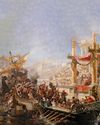
NAUMACHIA TRUTH BEHIND ROME'S GLADIATOR SEA BATTLES
In their quest for evermore novel and bloody entertainment, the Romans staged enormous naval fights on artificial lakes
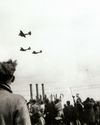
OPERATION MANNA
In late April 1945, millions of Dutch civilians were starving as Nazi retribution for the failed Operation Market Garden cut off supplies. eet as In response, Allied bombers launched a risky mission to air-drop food
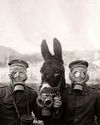
GASSING HITLER
Just a month before the end of WWI, the future Fuhrer was blinded by a British shell and invalided away from the frontline. Over a century later, has the artillery brigade that launched the fateful attack finally been identified?
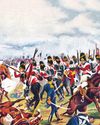
SALAMANCA
After years of largely defensive campaigning, Lieutenant General Arthur Wellesley went on the offensive against a French invasion of Andalusia

HUMBERT 'ROCKY'VERSACE
Early in the Vietnam War, a dedicated US Special Forces officer defied his merciless Viet Cong captors and inspired his fellow POWs to survive
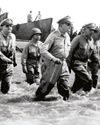
LEYTE 1944 SINKING THE RISING SUN
One of the more difficult island campaigns in WWII's Pacific Theatre saw a brutal months-long fight that exhausted Japan’s military strength

MAD DAWN
How technology transformed strategic thinking and military doctrine from the Cold War to the current day
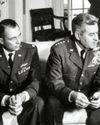
BRUSHES WITH ARMAGEDDON
Humanity came close to self-annihilation with the Cuban Missile Crisis, Broken Arrows’ and other nuclear near misses
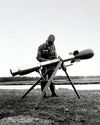
THE DEADLY RACE
How the road to peace led to an arms contest between the USA and USSR, with prototypes, proliferation and the world’s biggest bomb
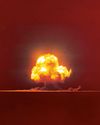
THE MANHATTAN PROJECT
Einstein, Oppenheimer and the race to beat Hitler to the bomb. How a science project in the desert helped win a war